Timothy Palzkill, Ph.D., Chair, Department of Biochemistry and Molecular Pharmacology

Dr. Timothy Palzkill is a professor and chair of the Department of Biochemistry and Molecular Pharmacology. He also serves as the academic chair for the Cullen Trust for Higher Education. Palzkill earned his undergraduate degree from Creighton University and received his Ph.D. from the University Of Iowa. He completed his post-doctoral fellowship at Stanford University.
Palzkill is interested in protein structure/function and functional genomics. Currently, his lab is focused on the following fields: Molecular basis of serine and metallo β-lactamase-mediated antibiotic resistance, development of Norovirus diagnostic tools and therapeutics, and molecular recognition in protein-protein interactions. To investigate these and other diverse projects currently underway in the lab, various tools such as phage display, ELISAs, surface plasmon resonance, peptide synthesis, protein purification, enzyme kinetics, and X-Ray crystallography are used.
Nancy Moreno,Ph.D., Chair, Department of Education, Innovation and Technology

Dr. Nancy Moreno was appointed chair of the newly named Department of Education, Innovation and Technology at Baylor College of Medicine in July of 2020. She has served as associate provost of faculty development and institutional research at Baylor since 2015 and also is director of Baylor’s Center for Educational Outreach and professor in the School of Health Professions and Department of Family and Community Medicine.
Moreno was instrumental in the established Baylor's partnership with Houston ISD to create the Baylor College of Medicine Academy at James D. Ryan and the Baylor College of Medicine Biotech Academy at Rusk middle schools. These schools, and others Baylor has partnered with, have provided students with educational experience in science and led to many pursuing careers in science or medicine. Moreno was elected as a fellow of the American Association for the Advancement of Science in 2018 for her distinguished contributions to K-12 education and for science and health curriculum development.
She has earned Baylor’s Barbara and Corbin J. Robertson Jr. Presidential Award for Excellence in Education and the AAAS Science Prize for Online Resources in Education, awarded to BioEd Online, an educational resource for educators, students and parents.
Moreno has a bachelor’s degree from the University of Wisconsin and a Ph.D. from Rice University.
Susan L. Hamilton, Ph.D., Chair, Department of Integrative Physiology
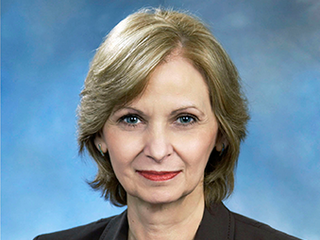
Susan Lois Hamilton, chair of the Department of Integrated Physiology, received her Ph.D. in biophysics from the University of Colorado Health Science Center in Denver and did her postdoctoral work in the Department of Neurology at the College of Physicians and Surgeons at Columbia University in New York City.
Dr. Hamilton serves as the editor-in-chief of Physiological Reviews and is a member of both the MDA Scientific Advisory Committee and the SMEP NIH study section. Her area of research is skeletal muscle excitation-contraction coupling and human diseases associated with alterations in this process. Her research is funded by four NIH R01 grants, a project of NIH program project grant with investigators from Harvard, and a grant from the Muscular Dystrophy Association. She is also the program director for a NIH training grant within the department. Dr. Hamilton chairs the ECPRAC committee for Endowed Chairs and serves on the Faculty Promotions and Tenure Committee and on the Best Minds Faculty Cabinet. Dr. Hamilton helped to found the Translational Biology and Molecular Medicine Graduate Program and the Mouse Phenotyping Core.
Joseph Petrosino, Ph.D., Chief Scientific Innovation Officer and Chair, Department of Microbiology and Molecular Virology
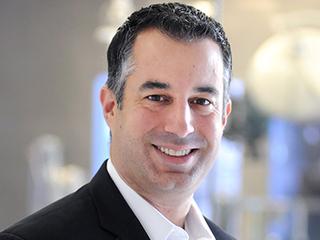
Joseph Petrosino, a professor in the Department of Molecular Virology and Microbiology and director of the Alkek Center for Metagenomics and Microbiome Research, was appointed chair of the department in August, 2019.
He is a nationally recognized leader in metagenomics research with extensive research funding. The center is an international hub for the development and implementation of advanced technologies for the understanding of how the microbiome impacts health and disease, and for the translation of this knowledge into microbiome-based therapeutics and diagnostics.
A graduate of University of Rochester, Petrosino received a Ph.D. and advance training from Baylor.
Margaret “Peggy” Goodell, Ph.D., Chair of the Department of Molecular and Cellular Biology
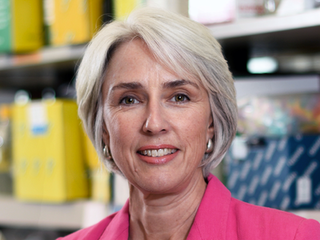
Peggy Goodell, Ph.D., a professor in the Center for Cell and Gene Therapy as well as in the Departments of Pediatrics, Molecular & Human Genetics, and Pathology & Immunology, was named chair of the Department of Molecular and Cellular Biology, effective Oct. 1, 2019. Goodell succeeds Dr. Bert O’Malley, who led the acclaimed department for more than 45 years.
Dr. Goodell joined Baylor in 1997 after completing her Ph.D. at the University of Cambridge in England and postdoctoral fellowships at the Whitehead Institute for Biomedical Research at MIT and Harvard Medical School. She is the founding director of the Stem Cells and Regenerative Medicine Center at Baylor and holds the Vivian L. Smith Chair in Regenerative Medicine. She is co-leader of the Cancer Cell and Gene Therapy Program in the Dan L Duncan Comprehensive Cancer Center at Baylor.
Her research focuses on understanding the molecular regulations of stem cells and their malignant counterparts. She is an internationally recognized leader in this field of research with more than 26,000 citations.
Brendan Lee, M.D., Chair, Department of Molecular and Human Genetics
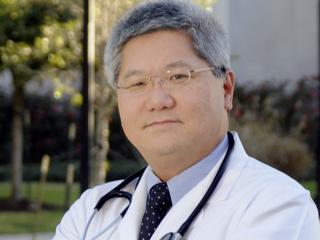
Dr. Brendan Lee took on responsibilities as department chair in December 2014 after serving as interim chair since June 2014.
Lee, a member of the Institute of Medicine, also serves as a professor in the genetics department, as well as co-director of the Rolanette and Berdon Lawrence Bone Disease Program of Texas, a collaboration of Baylor and The University of Texas MD Anderson Cancer Center and as director of the Center for Skeletal Medicine and Biology at Baylor.
He holds the Robert and Janice McNair Endowed Chair in Molecular and Human Genetics and is the founder and director of the Skeletal Dysplasia Clinic at Texas Children’s Hospital.
Lee is an internationally recognized geneticist. His research centers on understanding how gene mutations affect skeletal development and combines laboratory studies with clinical research involving patients with skeletal problems. Another important area of research for Lee is metabolic disorders or energy regulation.
Lee and colleagues were recently awarded two large NIH grants which Lee will serve as principal investigator. They include a $7.3 million, four-year grant on a study at Baylor to join a national network of clinicians and scientists joining forces to address prolonged undiagnosed medical conditions and a $6.25 million, five-year grant to lead a multi-center initiative that will focus on understanding and providing better therapeutic options for brittle bone disorder.
As an M.D./Ph.D. student at State University of New York, Downstate Medical Center in the late 1980s, he was first to clone two genes for connective tissue diseases – Marfan syndrome and spondyloepiphyseal dysplasia. He completed both his medical and doctorate degrees at SUNY and then his pediatric residency and two genetics fellowships at Baylor.
As an educator, Lee is a mentor to medical and graduate students, and directs the Medical Research Pathway at Baylor. The pathway gives medical students who do not want to pursue a Ph.D. the chance to do research in the laboratory.
Along with genetics, he is a professor in the Program in Integrative Molecular and Biomedical Sciences, Program in Developmental Biology and Program in Translational Biology and Molecular Medicine.
Lee is the recipient of many awards and honors, and was recently named as one of the 2014 Fellows of the American Association for the Advancement of Science.
Paul Pfaffinger, Ph.D., Interim Chair, Department of Neuroscience
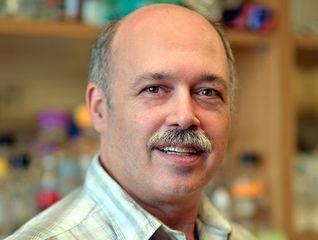
Dr. Paul Pfaffinger, a professor of Neuroscience and a member of the Baylor faculty for 25 years, serves as interim chair of the department. He received his Ph.D. from the University of Washington with advanced training in Molecular Neuroscience from Columbia University. He holds secondary appointments in the Graduate Program in Quantitative and Computational Biosciences and the Molecular Physiology Department and membership in the Intellectual and Developmental Disabilities Research Center and the Center for Drug Discovery. He is the author of over 50 peer reviewed journal articles. Pfaffinger also has a long standing commitment to education, and teaches and is course director for both the Graduate School and Medical school. He has won numerous teaching awards for both didactic teaching and mentoring.
Pfaffinger’s lab focuses on understanding the regulation of ion channels and their roles in native neurons. He has made important contributions to our understanding of ion channel regulation by G-protein coupled receptors, the assembly and trafficking of ion channels, and the mechanisms by which auxiliary subunit proteins are involved in driving diverse functional expression of ion channels from a relatively small number of genes. Currently, research in his lab is focusing on understanding the roles of channel diversity in information processing as well as the biophysical mechanisms underlying ion channel regulation by small peptide modulators and the role of this regulation in the brain.








